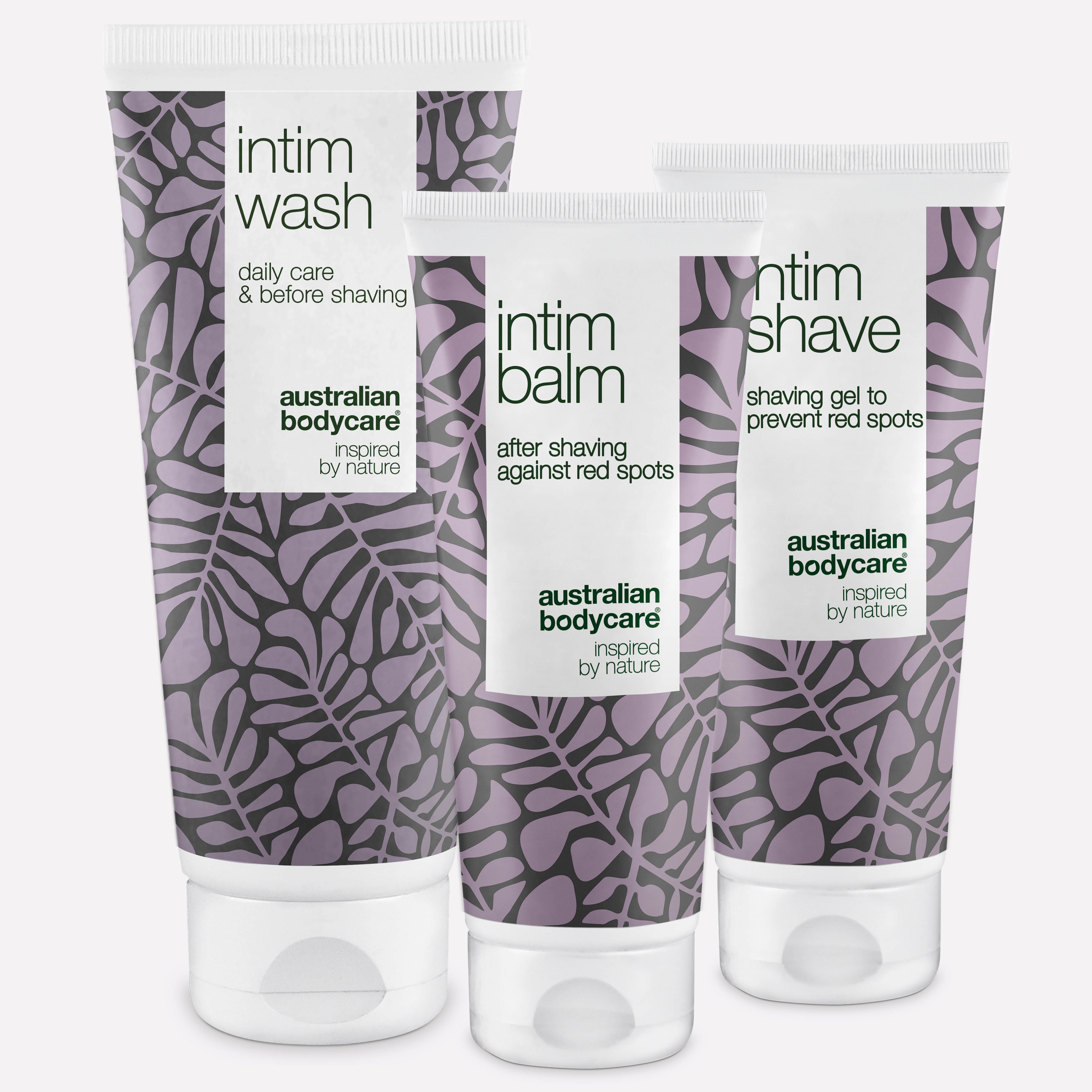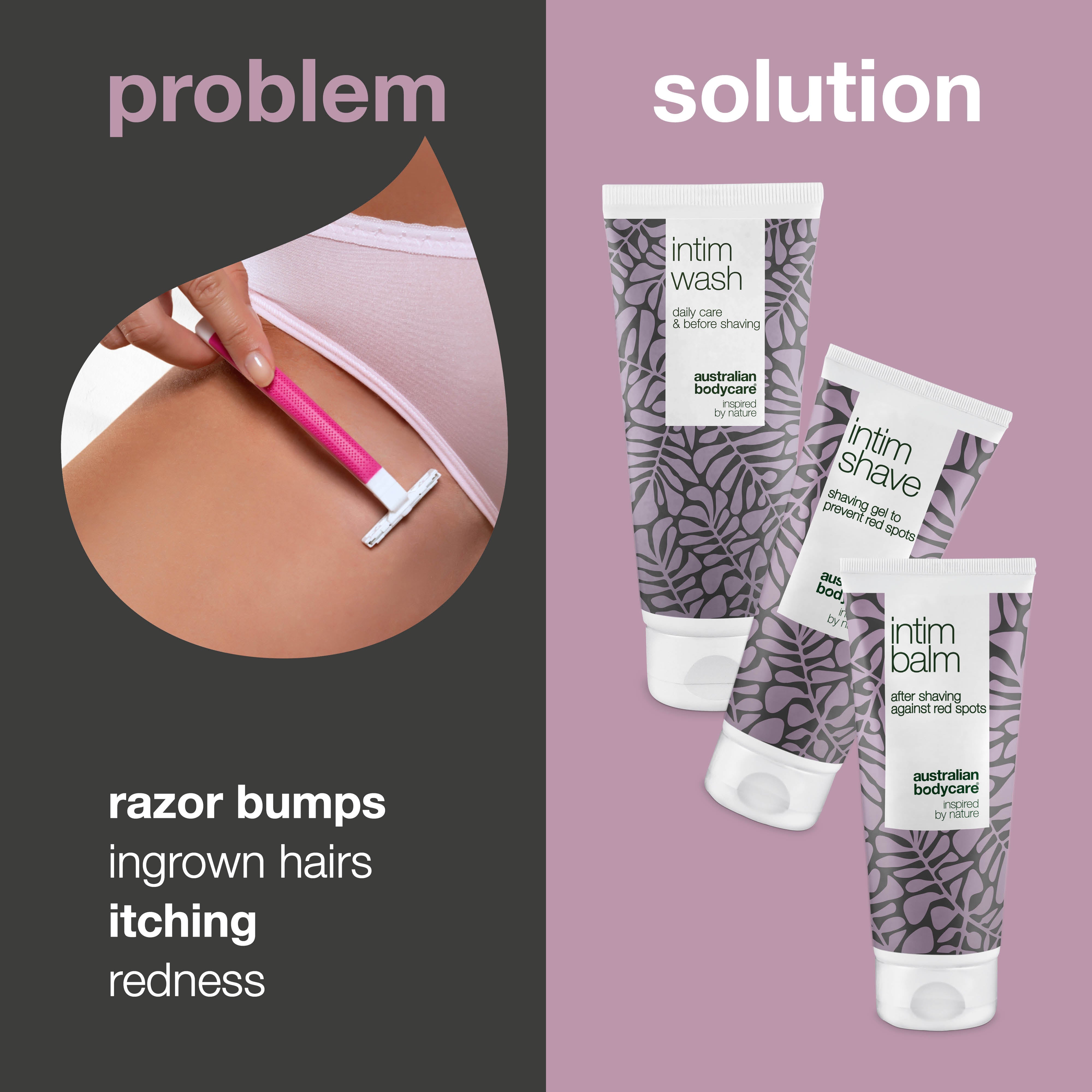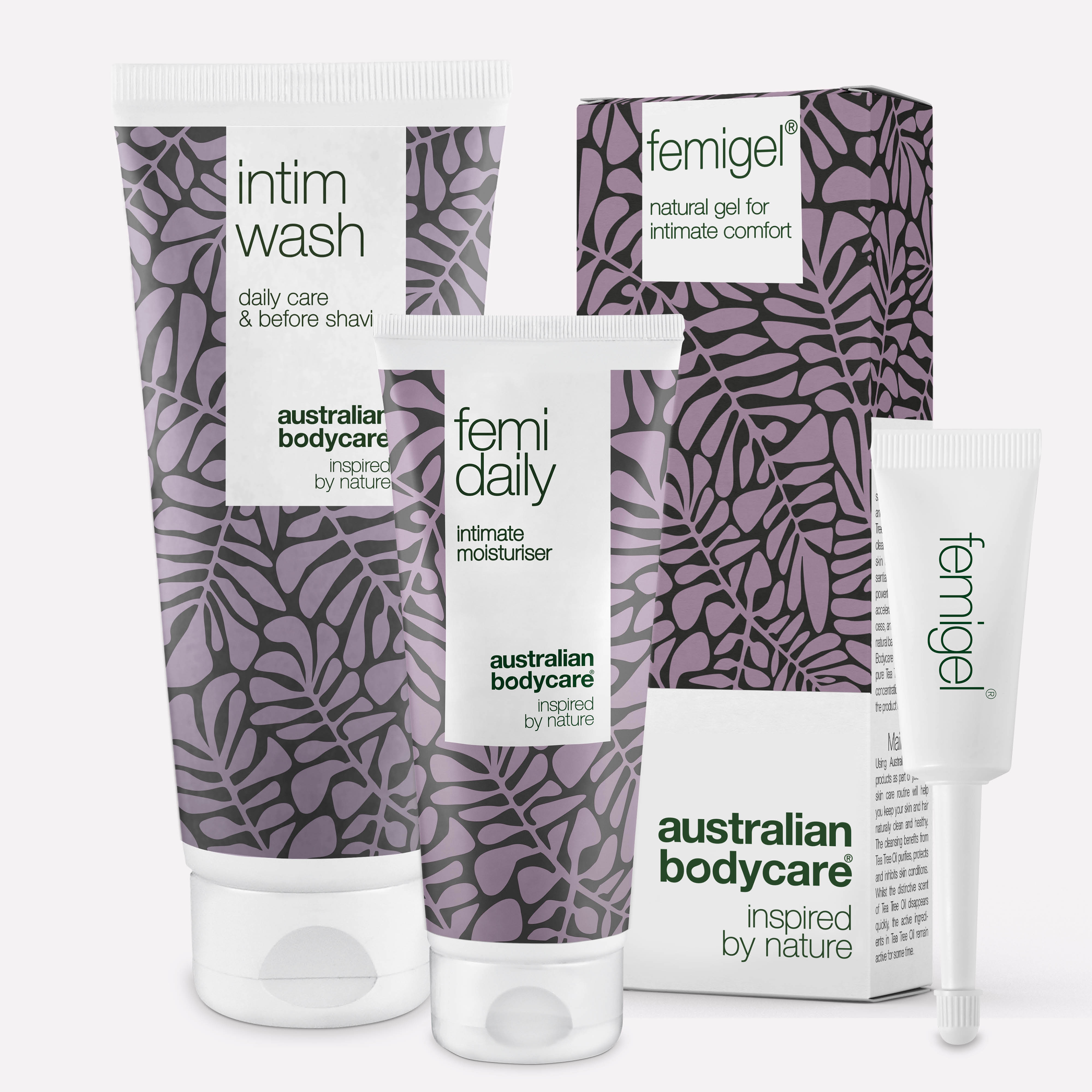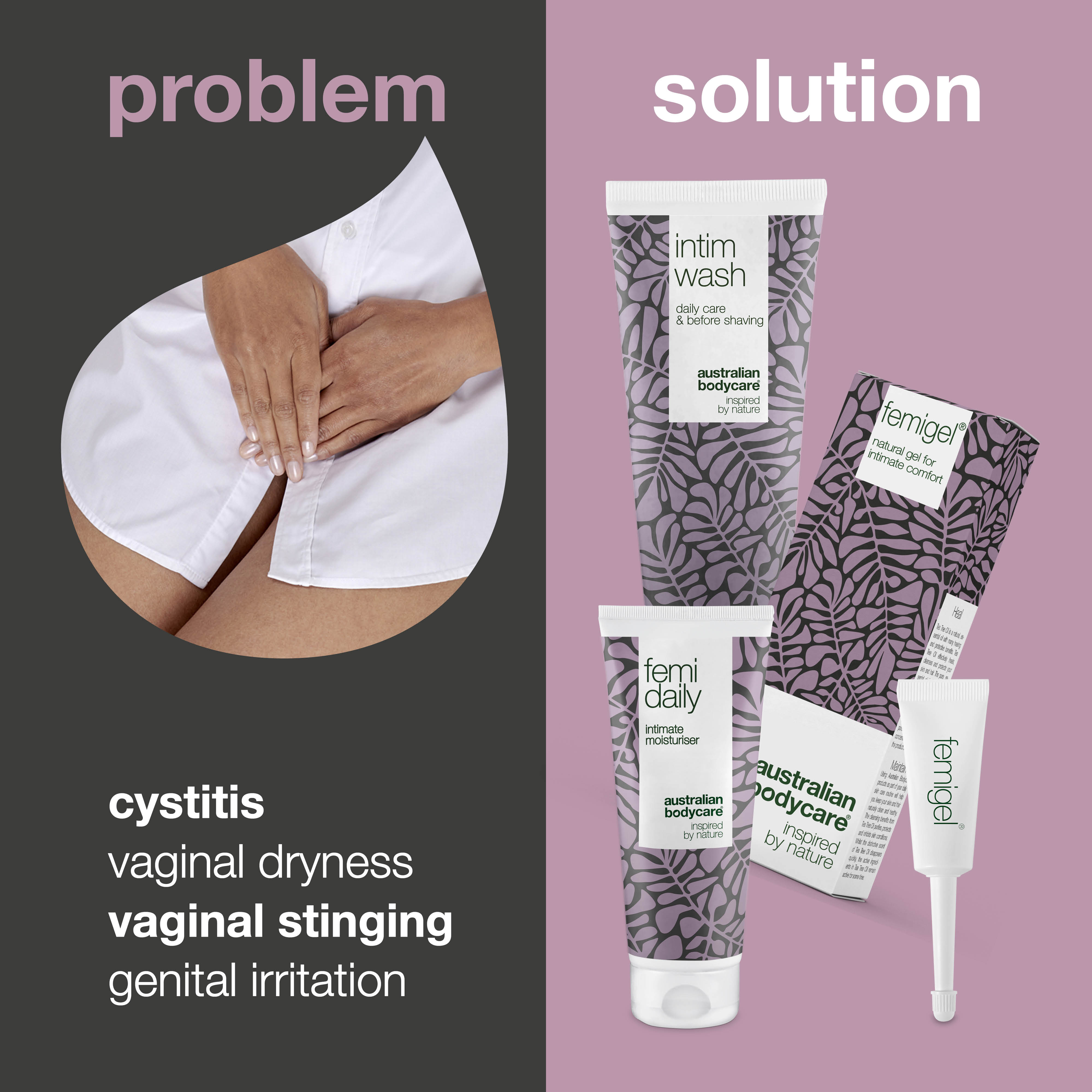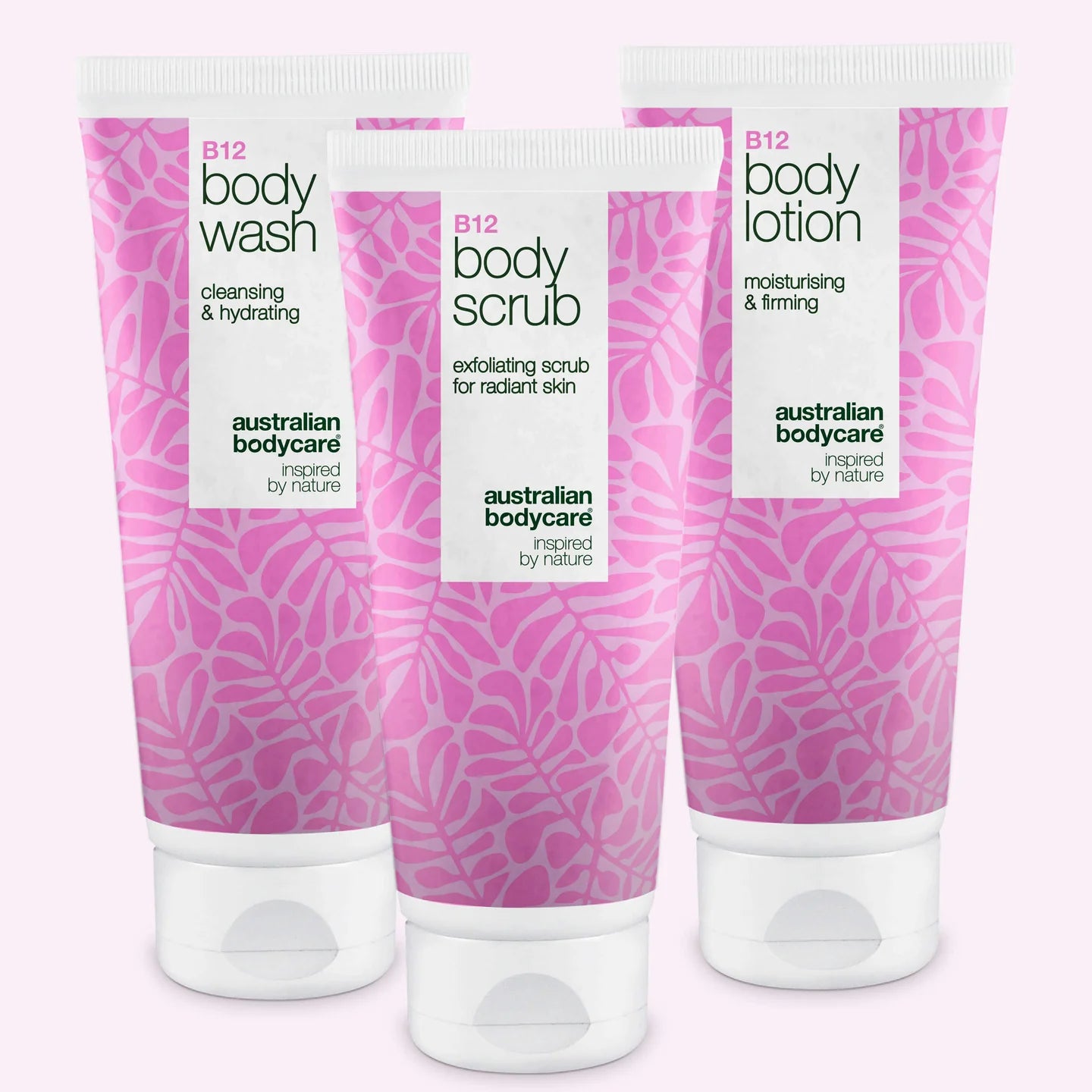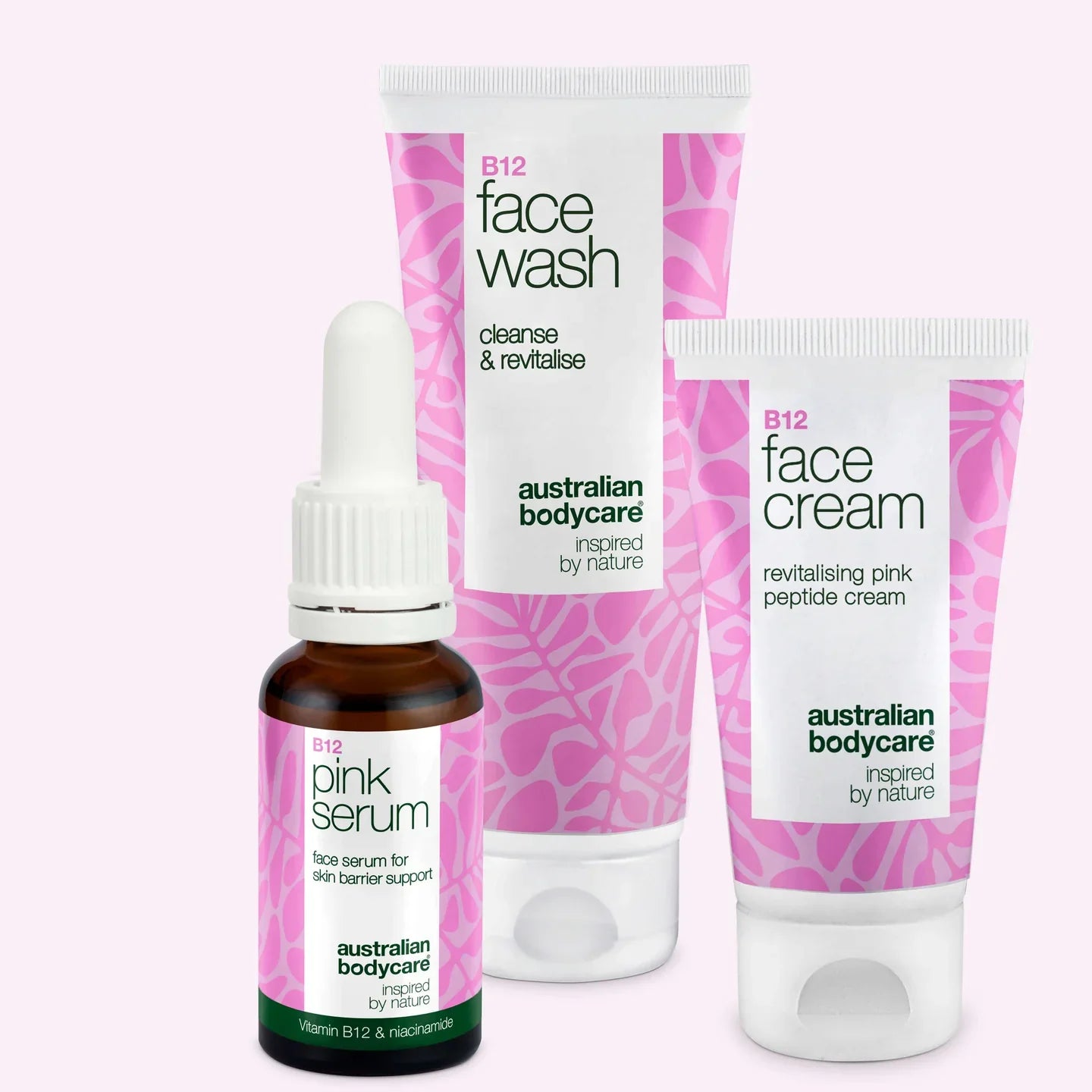Folliculitis – infection in hair follicles
Every single hair on the body grows in its own follicle. Folliculitis means that bacteria have got into one or more hair follicles. Infection in hair follicles is often seen on the legs or the scalp or after an intimate shave, but the problem can occur anywhere on the body where hair grows. It is uncomfortable, and itches, but can be treated, and avoided with good care.
Table of contents
What is folliculitis?
Folliculitis looks like small spots. If you look carefully, you can often see a little strand of hair in the middle. This is a sign that there is infection in the follicle. You can get folliculitis in a single follicle or in several, and they itch more or less.
The condition is usually caused by ‘golden staph’ or staphylococcus bacteria, and shows as spots, especially in younger men, on the scalp and in areas with hair generally. Folliculitis is also very common, both in men and in women.
It disappears, however, if it is treated. If it keeps on flaring up, it is important to find the source of infection, e.g. to see whether the patient or others in the family have staphylococci in the nose or elsewhere on the body.
Why do hair follicles get infected?
Friction on the skin, tight-fitting clothes, or if you sweat a lot or have dry skin, these are all factors that increase the risk of infection in the follicles.
- Folliculitis can also appear after shaving.
- Bubble baths and spa baths may also be a source of infection.
- Infections in the hair follicles occur more frequently if you already suffer from eczema.
Where on the body does folliculitis occur?
You can get folliculitis anywhere on the body and face, where there are hairs.
- Scalp
- Face
- Legs
- Intimate areas
Treatment for folliculitis
Folliculitis can be treated and dealt with in various ways:
- Washing with soap that contains chlorhexidine. Ordinary washing is also important, with soap and plenty of water.
- Antibiotics may also help with folliculitis. However, there is a risk that antibiotics may lead to resistance to antibiotics or contact allergy.
- It is a good idea to brush the skin with a hemp glove before shaving.
- To prevent recurrences of folliculitis, it is important to kill off all bacteria from the source of the infection. This may be in the nose, which can he shown up by taking a swab test.
- Folliculitis in the beard area can be treated locally with antibiotics or with tablets.
- If you have extensive folliculitis (furunculosis), antibiotics are necessary, and you should see a doctor.
Care for the skin and scalp
If you have problems with your follicles, it is a good idea to care for the skin by washing it with antiseptic soap.
For follicle problems on the scalp we recommend daily care with Scalp Serum, Hair Clean shampoo and our Hair Care conditioner.
For the body, we recommend Body Wash, Body Lotion and Body Cream.
Shaving the intimate area
After intimate shaving you run the risk of getting itching red spots on the skin. These are called shaving spots, and are caused by bacteria getting into the pores in the skin.
It is therefore most important with intimate shaving to avoid these spots by keeping the skin clean. When you shave the intimate area, you can use Intim Wash, Intim Shave and Intim Balm.
Avoid sharing your shaver, towels and washcloths with others.
Avoid tight clothing
These tips may also help to avoid recurring folliculitis:
- Avoid tight clothing. This reduces friction between your skin and your clothes.
- If you regularly use rubber gloves, turn them inside out after each time you use them, rinse them with soap and water, and dry them thoroughly.
- Only take tub baths in a clean tub, and only use heated swimming pools. Remember to clean bubble baths and pools regularly, and add chlorine as recommended.
Caring for the intimate area
If you have problems in the intimate area, you can use Femigel, which is effective for stinging, itching and discomfort in the intimate area. Due to the antiseptic effect of Tea Tree Oil, the gel nurtures, soothes and calms delicate skin.
Femi Daily cares for the skin and supplements Femigel, combating bacteria that can cause itching, irritation and unpleasant smells. At the same time, it cares for and maintains the natural microflora and maintains the natural moisture level in the area.
Products from Australian Bodycare are pH regulated for intimate use, and dermatologically tested. Then we are sure that our products are kind to skin – and suitable for sensitive skin too.




